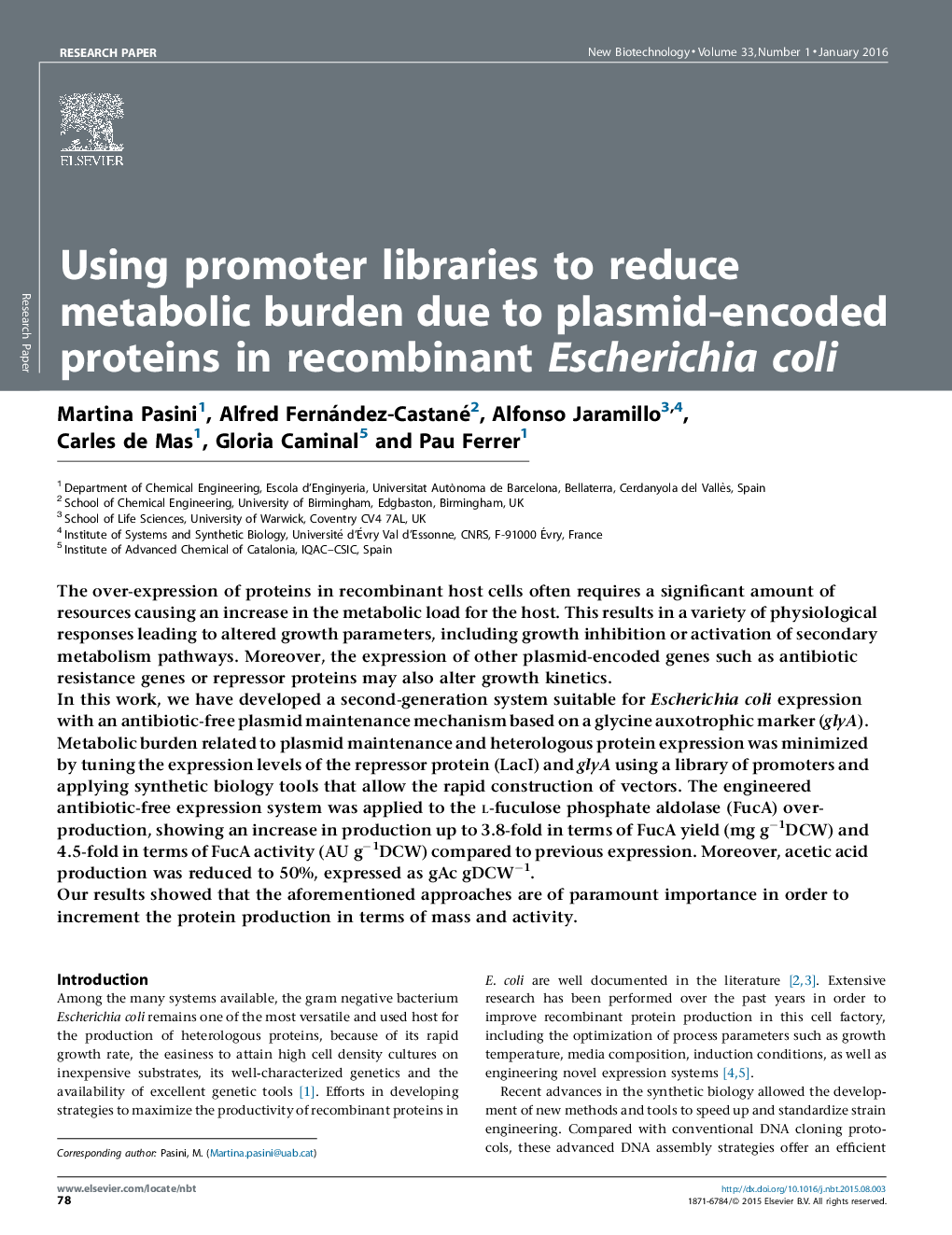| Article ID | Journal | Published Year | Pages | File Type |
|---|---|---|---|---|
| 33039 | New Biotechnology | 2016 | 13 Pages |
•Minimization of the metabolic burden.•Develop of an antibiotic-free expression system, devoid of resistance markers.•Improvement of the recombinant FucA production.
The over-expression of proteins in recombinant host cells often requires a significant amount of resources causing an increase in the metabolic load for the host. This results in a variety of physiological responses leading to altered growth parameters, including growth inhibition or activation of secondary metabolism pathways. Moreover, the expression of other plasmid-encoded genes such as antibiotic resistance genes or repressor proteins may also alter growth kinetics.In this work, we have developed a second-generation system suitable for Escherichia coli expression with an antibiotic-free plasmid maintenance mechanism based on a glycine auxotrophic marker (glyA). Metabolic burden related to plasmid maintenance and heterologous protein expression was minimized by tuning the expression levels of the repressor protein (LacI) and glyA using a library of promoters and applying synthetic biology tools that allow the rapid construction of vectors. The engineered antibiotic-free expression system was applied to the l-fuculose phosphate aldolase (FucA) over-production, showing an increase in production up to 3.8-fold in terms of FucA yield (mg g−1DCW) and 4.5-fold in terms of FucA activity (AU g−1DCW) compared to previous expression. Moreover, acetic acid production was reduced to 50%, expressed as gAc gDCW−1.Our results showed that the aforementioned approaches are of paramount importance in order to increment the protein production in terms of mass and activity.
